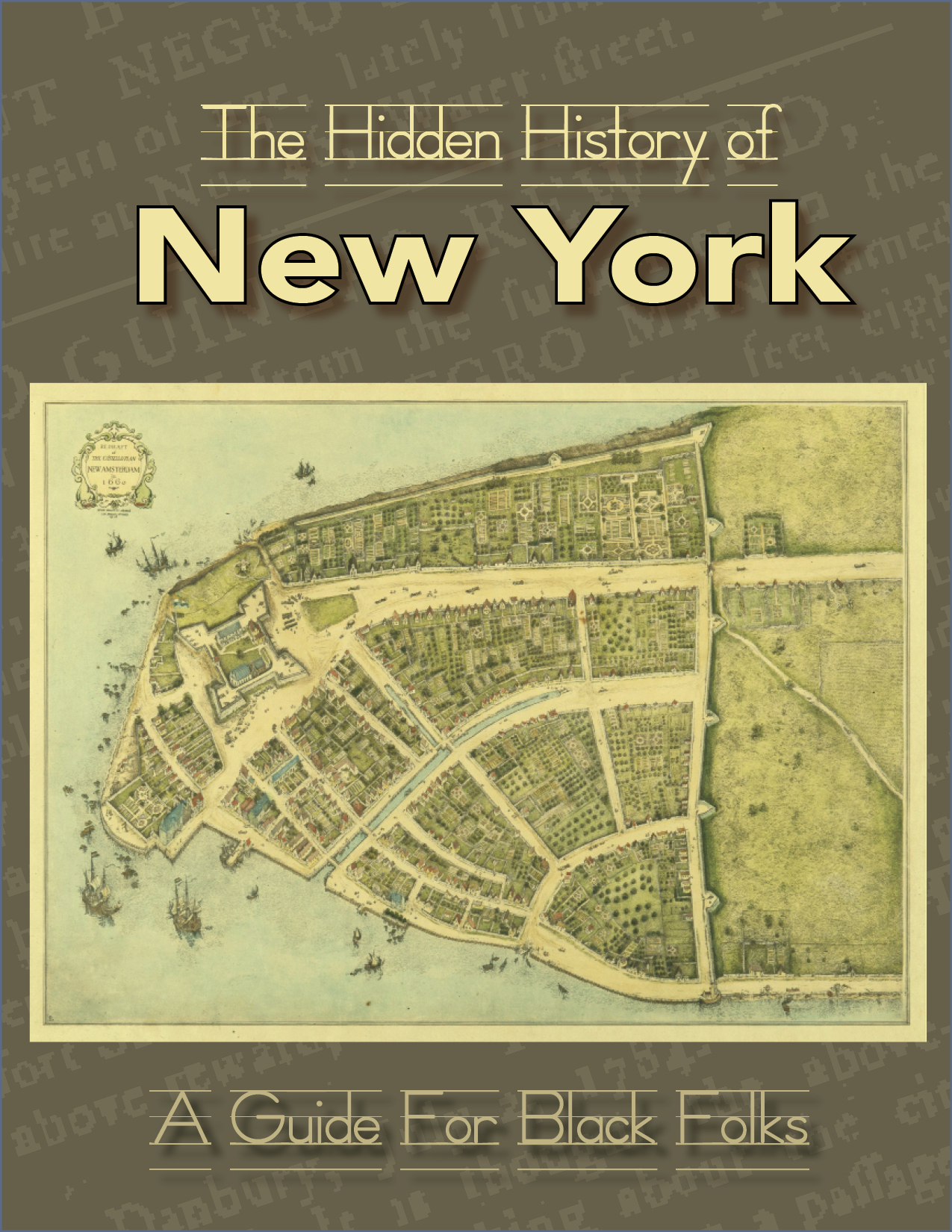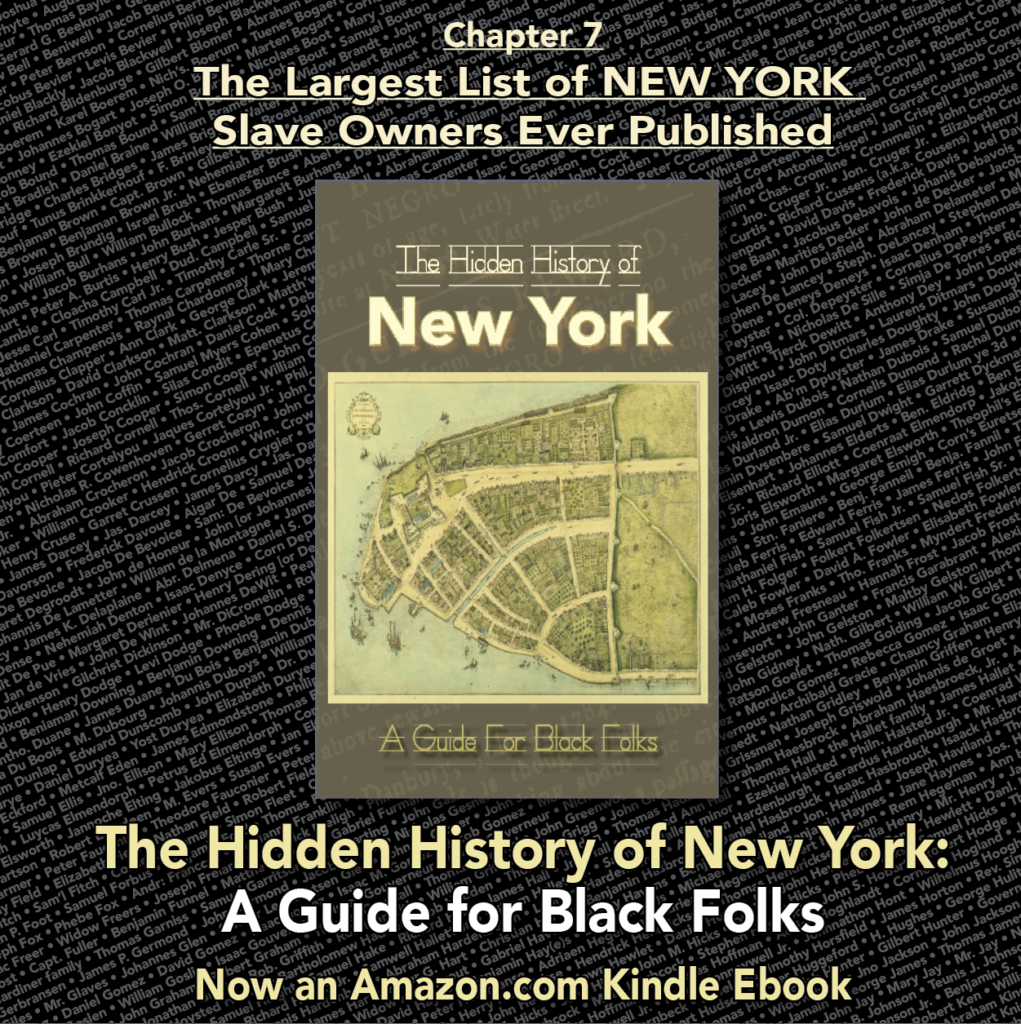Slave Codes of New York
Below are some of the laws that existed in New York to control its Black population. Some were plainly malicious; others were designed to eliminate any means for Blacks to obtain any economic foundation. Even when these restrictive codes were repealed, the force of custom maintained the rigid code of exclusion from all forms of capital wealth.
• More than three slaves congregating together was strictly forbidden on “penalty of being Whipt upon the Naked Back” up to 40 lashes. In an obvious pre-cursor to police policy of today, if Blacks were found congregating and they refused to submit to white authority, the police were to “fire upon them, kill or destroy them, if they cannot otherwise be taken.”
• Blacks could not carry “guns, swords, clubs, staves, or any kind of weapon,” on penalty of receiving 10 lashes.
• Blacks were forbidden to ride horses, under penalty of 40 lashes.
• A 1692 law decreed that any slave “playing or making any hooting or disorderly noise…or found in a publick house” on that day was to receive 20 lashes.
• “Negroes, Indians and Mulattoes” were prohibited from being on the street at night unless carrying a lantern.
• It was an offense to buy from or sell to any slave without the consent of their master.
• “Free Negroes” in New York and New Jersey were not allowed to “enjoy, hold or possess any houses, lands, tenements or hereditaments within the colony.”
• A New York City ordinance provided that no more than 12 Blacks, in addition to the coffin-bearers and the gravedigger, could be at any funeral under penalty of public whipping. Blacks were prevented by law from holding funerals after dark.
• Blacks could not pawn tools, apparel, or merchandise of any kind.
• It was decreed in 1740 that no Blacks could sell vegetables or fruits. Conviction meant a public whipping.
• Blacks guilty of drunkenness, cursing, being rude or stubborn “or talking impudently to any Christian” were to be whipped.
• Blacks were prevented by law from training dogs.
• Blacks from the country were forbidden to mingle with those from the city.
Many of these harsh laws came into effect in 1702 under the regime of Queen Anne’s cousin, Lord Cornbury, who imposed a criminal code which plainly did not apply to him. He embezzled public funds to finance his all-night drunken parties and his purchases of ladies’ garments, which he enjoyed wearing in public. These laws were strengthened throughout the British rule.
With the approach of the 1776 American Revolution, the now 18,000 New York Blacks understood that even with British racism and British investment in the slave trade, life under the Americans would likely be worse. They allied with the British, who offered personal freedom and a measure of independence for those Blacks who were loyal to Britain during the war.
When the Americans gained mastery over the land after the war, they wasted no time in imposing their own racist authority. They adopted and maintained the prevailing Black Codes and applied them with vigor. Far from conferring “freedom for all,” one of the first New York legislative acts in 1781 was to encourage slave owners to deliver their Black slaves to the militia to defend the state.
[from the book, The Hidden History of New York: A Guide for Black Folks]


